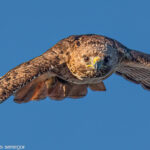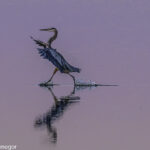There is a tired old joke about a tourist lost in upper Manhattan who asks, “How do you get to Carnegie Hall?” A local New Yorker answers, “practice, practice, practice.”
I can say something similar to wine tasters who want to achieve a certain level of acquaintance with the subject, “taste, taste, taste.”
A case in point.
In a recent blind tasting I took a smell and sip of a wine and I proclaimed, “2007 Vacqueras.” Others around the table did the same and a discussion ensued, entertaining various guesses. When unveiled, it was indeed 2007 Vacqueras. A homerun!
Impressed, my mates asked, “how did you know?” I paused, in a “huh?!” moment, as I always am when faced with this question.
Most wine tasters do not realize that the process is one that taxes a primitive, animal part of our brain, animals being more adept at smell and taste. Humans think of themselves as sophisticated, more so than animals, because of their higher cognitive abilities. They talk, think, and associate their thoughts into complicated concepts. Wine snobs consider themselves at yet a higher level of sophistication, above other humans, crude and vulgar mobs who don’t understand wine. The wine world provides them with plenty to mull over, complex geography with maps and appellations, endless lists of varietals, hard to pronounce names, technical minutiae related to oenology and vinification, and of course that complex and peculiar language of wine relating colors, smells and tastes to other, sometimes hard-to-relate entities.
Your average wine taster has their tasting experience amid massive cognitive contamination, reading bottle labels, listening to nonsense pouring out of the pourer, distracted by nearby conversations. The smell and taste, a fleeting, split-second experience is easily lost. The taster is swayed by numerous factors around the wine, from price, to decor, to food, and most important, by what others think of the wine. The process is no different than trying to study astronomy in a night sky, brightly lit by a big city.
The essence of the tasting experience is that split second and the impressions, the smell and taste memories it leaves behind. Giving it some words is useful in sharing the experience with others.but getting excessively involved with geography and terminology is distracting. The best way to understand wine is to keep smelling and tasting, and thus enlarging that memory bank in the base of our brains where the animal in us resides.
I have always kept my personal wine language simple and limited. I have no use for a dozen different words about fruits, vegetables, and other aromas to describe a given tasting experience. The memories I draw on to identify a given wine do not come from the human part of my brain and are wordless.
Thus, when confronted with the question of how I identified that 2007 Vacqueras correctly, I had a simple answer. “I’ve had a few Vacqueras from that vintage in the last few weeks,” I said, “and this one smelled and tasted similar.”
Enough said.
Having been blindly tasting wines for nearly two decades and attempting to identify them, I have learned that a correct I.D. is rare and precious, a moment to be savored. For those who want to do the same, if they are novices, I suggest that they acquaint themselves with the basics of geography and language, and otherwise taste, taste, taste. As for self proclaimed experts (aka snobs), many would be better off distancing themselves from too much geography and language, and return to the basics: taste, taste, taste.








